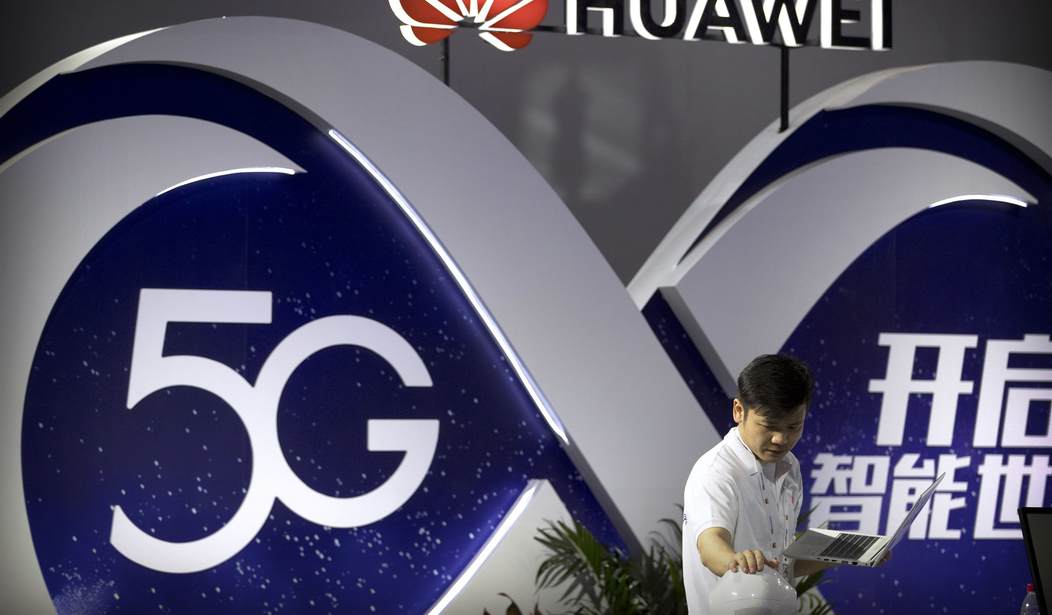February was a cruel month for the Chinese corporate giant Huawei Technologies, and rightly so. The "high-risk" telecommunications company with deep ties to Beijing's communist dictatorship deserves an even crueler April and a disastrous 2020 marked by criminal investigation, criminal indictment and billion-dollar lawsuits.
For several years Huawei has pursued a strategy to position itself as the world's biggest supplier of telecommunications equipment, with the goal of dominating global and regional communications infrastructure as well as crucial international digital systems.
Its most worrisome operation gambit involves the 5G "next generation" wireless communication systems that have the ability to connect cellphones, the internet, the internet of things -- well, virtually all things digital. Huawei intends to provide hardware and corporate technical support.
Here's the high-risk rub: Does anyone not on the payroll of the Chinese Communist Party trust Beijing's dictatorship with the power to pervasively monitor communications (spy locally as well as globally), interrupt, deny or corrupt digital services, and possibly take surreptitious control of digital devices, say, the air traffic control computers at Los Angeles International Airport?
Outrageous scenario? No, given Huawei's baggage is a legitimate worry exacerbated by the regime's criminal dishonesty (e.g., lying about COVID-19/Wuhan virus). For all practical purposes, Huawei is a Chinese Communist Party tool. In spy lingo, a cutout company can hide an espionage operation. Abundant evidence suggests Huawei serves as a cutout.
Recommended
Which is why February's tough responses to Beijing's gambit were so encouraging.
On Feb. 10, U.S. Attorney General William Barr did more than make the case that Huawei poses a security risk to the entire free world. He also suggested several actions the U.S. and its allies could undertake to confront China and mitigate Huawei's threat. He suggested the U.S. form a consortium with private U.S. and allied companies to manufacture 5G equipment. He specifically mentioned Nokia and Ericsson. Nokia, Ericsson and Samsung are Nos. 1, 2 and 3 globally in holding standard and essential telecommunications patents. By this measure, three democracies, Finland (Nokia), Sweden (Ericsson) and South Korea (Samsung), have superior tech.
Huawei is sixth, according to one analysis. Huawei, however, has assets its intellectual superiors lack: Beijing's money and political muscle, and the covert support of the authoritarian state's intelligence services. Some sources estimate Huawei has received $75 to $80 billion from Beijing and used the money to increase sales by guaranteeing financing.
On Feb. 13, Barr's Department of Justice and the FBI detailed Huawei's national and international security risk. The DOJ's 56-page indictment hit the company with 16 charges involving "racketeering conspiracy and conspiracy to steal trade secrets."
Huawei faces numerous counts of intellectual property theft. The indictment has some interesting tidbits that stink of government espionage. Federal investigators found a "top-secret" Huawei manual that ordered "certain individuals" to conceal the fact that they worked for the company when meeting "foreign law enforcement officials."
Numerous analysts believe Huawei has aided Chinese espionage efforts. Huawei personnel have admitted that the company has the ability to intercept communications using its hardware, both in mainland China and in foreign nations.
The company databases contain information on foreign personnel, phone records and property that have nothing to do with telecommunications.
Moreover, it is a fact the Chinese dictatorship requires Chinese companies to give Beijing access to all data they hold. But Huawei is not a private corporation. It is owned by a holding company that is owned by a trade union investment committee that is essentially an arm of the All-China Federation of Trade Unions, which is a public entity.
Then there's l'affair Meng Wanzhou. Ms. Meng is chief financial officer of Huawei and daughter of its founder. According to the DOJ, she was directly involved in stealing American-developed source code. She tried to steal memory hardware and antenna technology. She also violated U.S. sanctions on Iran. The U.S. is trying to extradite her from Canada.
Is she a spy? She acquired secrets of value to China's military. Beijing is doing everything it can to prevent her extradition, including harassing Canadian diplomats. Why, the regime treats her as if she were a diplomat -- or a spy.
























Join the conversation as a VIP Member